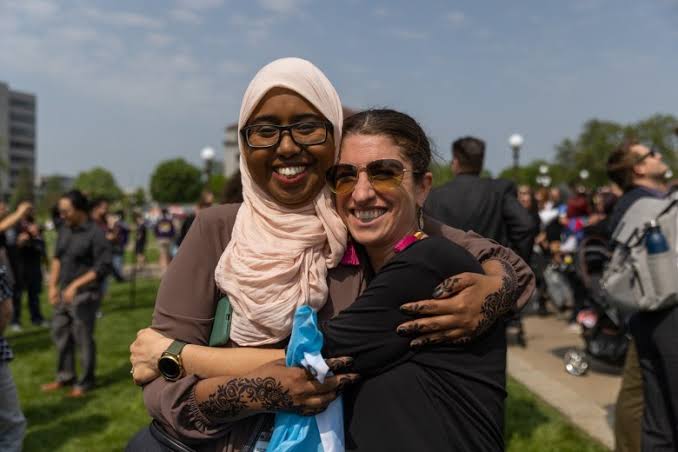Facebook Twitter (X) Instagram Somali Magazine - People's Magazine
Minnesota has taken a groundbreaking step in education by allowing teachers to become licensed to teach heritage languages such as Karen, Somali, and Hmong, thanks to a 2023 law aimed at improving cultural representation in schools. This initiative addresses the long-standing challenge where heritage language teachers often worked under temporary permissions without the job security and professional development offered to fully licensed educators.
The change has already begun to make an impact, with 47 teachers participating in the first cohort. Among them is Ehtalow Zar, one of the first Karen language teachers licensed in Minnesota—and possibly the country. Zar, who teaches at Johnson Senior High School in St. Paul, incorporates lessons on Karen culture alongside language instruction. Recently, she taught her students to cook Karen porridge, explaining its cultural significance as a dish from a time when Karen people had limited access to rice, meat, and vegetables.
The introduction of heritage language programs has become increasingly important in Minnesota, where immigrant communities have advocated for language preservation in schools. Research shows that learning a heritage language can improve students’ academic performance, sense of belonging, and cultural identity. However, the pathway for teachers to obtain a license in heritage languages was previously unclear and restrictive.
The new state-supported program simplifies the process, allowing educators to showcase their language proficiency and teaching abilities more effectively. Heritage language teachers were often required to seek annual “out of field” teaching permissions, capping their teaching opportunities at five years. Teachers like Pang Yang, who created a Hmong language program at Park Center Senior High, found the previous requirements burdensome, with portfolio submission processes that were difficult to navigate.
The 2023 law was the result of persistent advocacy by groups like Education Evolving, a nonprofit dedicated to educational equity. The new licensing pathway reduces bureaucratic obstacles and recognizes teachers’ multilingualism and cultural expertise as assets rather than barriers. It also provides free professional development for educators seeking licensure.
Programs at institutions like Concordia College in Moorhead and the University of Minnesota have also started offering pathways for heritage language licensure, further expanding opportunities for teachers. Concordia recently graduated its first cohort of Hmong language teachers and has begun training Somali and Karen teachers as well.
Teachers pursuing licensure have praised the new model for its affordability and support. Andrea Sepulveda, a Spanish teacher at Hiawatha Academies in Minneapolis, highlighted the value of gaining professional credentials without financial burdens.
The impact of this initiative extends beyond teachers. Students in these heritage language classes gain not only language skills but also a deeper sense of cultural pride. Zar’s students at Johnson High School spoke highly of her dedication, with many sharing how they had learned to read and write in Karen for the first time.
Zar, who was once told her English wasn’t strong enough to become a teacher, now serves as a powerful role model for her students. She emphasizes the importance of cultural identity, especially for students who may feel disconnected from their heritage.
Minnesota’s new approach has been hailed as a national model. Jenna Cushing-Leubner, an associate professor of world languages education at the University of Wisconsin-Whitewater, called it “the first of its kind,” emphasizing the importance of recognizing heritage languages in public education.
By empowering heritage language teachers with proper credentials, Minnesota is not only promoting cultural preservation but also enhancing the quality of education for students from diverse backgrounds. As the state continues to support these programs, the hope is that more students will embrace their cultural roots while achieving academic success.

